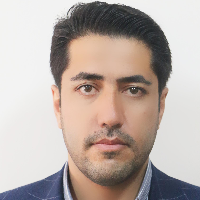The Position of the Qur'anic Ayahs in the Analysis of the Conquests of the Arab Muslims in Iran
Abstract </strong> The conquests of Arab Muslims in Iran is one of the issues that have not yet been fully explored and there are many unanswered questions. A fundamental question to ask is what role the ayahs of the Holy Qur'an played in the course of conquering Iran. The present study claims that the Qur'anic ayahs, as a guidebook for Muslims, have played a key role in Arabs' attitude and their performance in the conquests of Iran and their victory over the Sassanid government. Therefore, taking a descriptive-analytical approach, it attempts to reconstruct the position of the Qur'anic ayahs in the calculations and mental space of Arab Muslims by re-reading the historical texts. Muslims seem to have greatly profited from the inspirations of the Qur'anic ayahs in their battles. They were encouraged by the promises of victory given to the Muslims in the Qur'anic ayahs, and aroused the spirit of self-sacrifice and martyrdom by the idea of sacrificing oneself.
-
Analysis of speech acts in Imam Khomeini's Quranic quotations after the Islamic revolution (with emphasis on the verses of war and jihad)
, Ali Ghofrani *
Journal of Islamic Defense and Security Studies, -
Use of Social Control and Repression (Hard Power) in the Early Abbasid Caliphate (132–232 AH)
Mohamadhasan Beigi *, Mojtaba Heidari, Nasrin Gholami Mehrabadi
Historical Study of War, -
An Analysis of Speech Acts in the Qurʾānic References of Futuhat-i-Firoz Shahi Focusing on Ayahs of War and Jihad
Abdollah Motevali, *
Historical Study of War, -
Authority in the Umayyad and Abbasid political systems
Mohammadhasan Beigi*, Farhad Saboorifar, Nasrin Gholami
Quartely Research Journal of Islamic History, -
Investigating the role of different strata of the city of Arak in the process of the Islamic revolution (1965-1979)
*, Marzieh Radbakhsh
Journal of Documentary researches of the Islamic Revolution, -
Pathology of Articles in Two Management Quarterly Journals in Islamic University; Emphasizing the Information on the First Page of The Articles (2014-2018)
R.Mohammadi, *A.Zarei, M.Rostami
Irainian Journal of Management in the Islamic University,





